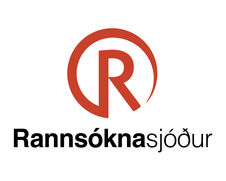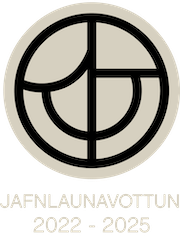Náttúruferðamennska í landslagi endurnýjanlegrar orku - verkefni lokið
Fréttatilkynning verkefnisstjóra
Mikilvægi framleiðslu á endurnýjanlegri orku hefur aukist mjög á heimsvísu vegna loftslagsbreytinga. Orkumannvirki breyta hins vegar landslaginu og það getur haft áhrif á náttúruferðamennsku. Til þess að draga úr mögulegum árekstrum um landnýtingu er mikilvægt að varpa ljósi á hið margþætta samspil náttúruferðamennsku og orkuframleiðslu og er það markmið þessa doktorsverkefnis.
Í verkefninu var gerð þematísk úttekt á fyrirliggjandi fræðilegum greinum um viðfangsefnið. Jafnframt var notast við tilviksrannsókn þar sem sjónum var beint á miðhálendið, sem er mjög mikilvægt fyrir ferðaþjónustuna sem og orkuframleiðendur. Í verkefninu var jafnframt kannað hvert viðhorf ferðamanna og ferðaþjónustuaðila er til orkumannvirkja á miðhálendinu, hvernig þessir aðilar skynja hvaða áhrif
orkumannvirki hafa á ferðaþjónustuna sem og hvernig þeir skynja hversu víðfem áhrif þeirra eru. Auk þess voru könnuð viðhorf ferðaþjónustuaðila til framtíðaruppbyggingar miðhálendisins í verkefninu. Blönduðum rannsóknaraðferðum var beitt við frumgagnasöfnun, þar með talið viðtöl,
spurningalistakannanir, þátttakendaathugun, opnar dagbækur og þátttaka GIS. Niðurstöður
verkefnisins sýndu að innbyrðis tengsl orkumannvirkja og ferðaþjónustu mótast af þremur þáttum: þáttum sem tengjast orkumannvirkjum, staðsetningu og hagsmunaaðilum í ferðaþjónustu. Fyrirhuguð orkumannvirki voru litin neikvæðari augum af hagsmunaaðilum í ferðaþjónustu samanborið við innviði sem hafa verið byggðir þar nú þegar. Virkjunarframkvæmdir vegna endurnýjanlegra orkugjafa þóttu ekki hentugar á víðernum, vegna áhrifa þeirra á umhverfið og upplifun ferðamanna á víðernum. Sýnt var fram á að víðerni eru mikilvæg auðlind fyrir ferðaþjónustu á Íslandi og því kjósa ferðaþjónustuaðilar að takmarka uppbyggingu á orkumannvirkjum, vegagerð og uppbyggingu innviða fyrir ferðaþjónustuna á miðhálendinu. Viðmælendur rannsóknarinnar höfðu áhyggjur af aðgengismálum að miðhálendinu og gæti það komið í veg fyrir frekari friðun víðerna og bendir á mikilvægi þess að vanda til verka þegar kemur að skipulagsmálum á víðernum. Niðurstöður doktorsverkefnisins sýna fram á mikilvægi þess að
skoða samhengi í kringum hvern orkukost og möguleg áhrif orkumannvirkjanna á náttúrutengda
ferðaþjónustu, sem er mikilvægt að að hafa í huga við uppbyggingu orkuframleiðslu á náttúrusvæðum.
English:
The importance of renewable energy harnessing keeps increasing globally due to the need to mitigate climate change. However, by transforming the surrounding landscapes renewable energy
infrastructure (REI) is likely to impact nature-based tourism. To address potential land use conflicts, it is important to investigate the complex interrelationships between nature-based tourism and REI, which is the main aim of this PhD project. In this project, a thematic review of existing academic research on the topic was conducted. Furthermore, a case study approach with a focus on the Icelandic Central Highlands, an area which is of high importance for tourism as well as energy stakeholders, was used. The attitudes of tourists and tourism service providers towards REI in the area, perceived impacts of REI on tourism, and their spatial extent were investigated. Additionally, the project researched the preferences of tourism service providers regarding future development of the Central Highlands. Mixed research methods were employed for primary data collection, including interviews, questionnaire surveys, participant observation, open-ended diaries, and participatory GIS. The findings of the project showed that the interrelationships between REI and tourism are shaped by three factor groups: factors related to REI, locational factors, and factors related to tourism stakeholders. Proposed REI was perceived by tourism stakeholders more negatively compared to existing infrastructure. Renewable energy projects were perceived as not suitable in wilderness areas, due to their impacts on the surrounding environment and on wilderness experience. Wilderness was shown to be an important
resource for the tourism industry in Iceland. Consequently, tourism service providers prefer to limit REI developments as well as road improvements and tourism infrastructure developments in the Central Highlands. However, issues related to ensuring access to the area for the tourism industry might hinder wilderness preservation and point to the importance of careful tourism planning in wilderness areas. The findings of this PhD project demonstrate the importance of the context surrounding each renewable energy project in shaping potential impacts of REI on nature-based tourism, which should be taken into consideration when planning REI developments in natural areas.
Information on how the results will be applied:
The results of this doctoral project constitute an important contribution to the knowledge on the
factors affecting the compatibility of REI with nature-based tourism, which is useful not only for the
scientific community but also for various stakeholder groups, such as the energy sector, the tourism industry, planners, and policymakers. The results of this project were used by the expert committee 2 of the Icelandic Master Plan for Nature Protection and Energy Utilization when assessing the proposed energy projects in Iceland.
A list of the project’s outputs:
This PhD project resulted in five research papers published in/submitted to international peerreviewed journals, and a doctoral thesis. During the months funded by the Icelandic Research Fund two research article manuscripts were prepared. One of them has been published in the Scandinavian Journal of Hospitality and Tourism in 2023, the second article manuscript is under review in the journal Environmental Development. Furthermore, the applicant successfully finished her doctoral thesis and got her doctoral degree in December 2022. The findings of the project were presented at three international conferences.
Heiti verkefnis: Náttúruferðamennska
í landslagi endurnýjanlegrar orku - Nature-based
tourism in renewable energy landscapes
Verkefnisstjóri: Edita Tverijonaite, Háskóla Íslands
Tegund styrks: Doktorsnemastyrkur
Styrktímabil: 2022
Fjárhæð styrks kr. 3.331.250
Tilvísunarnúmer Rannsóknasjóðs: 229084


